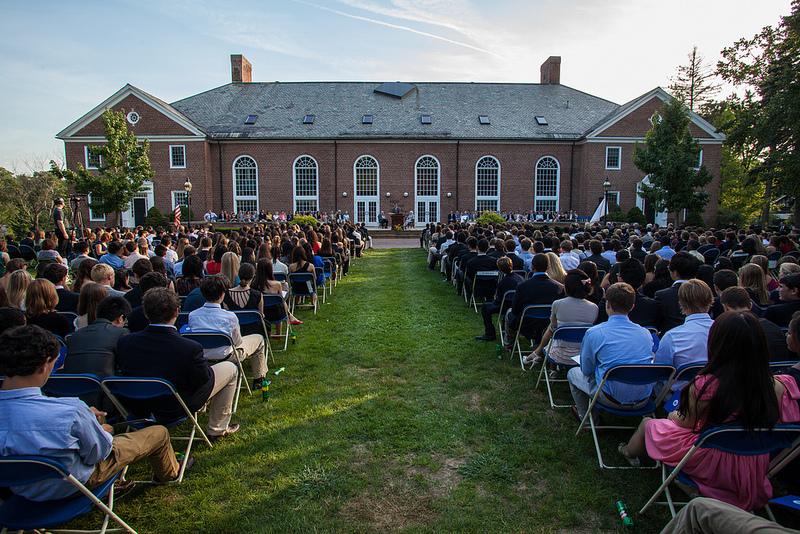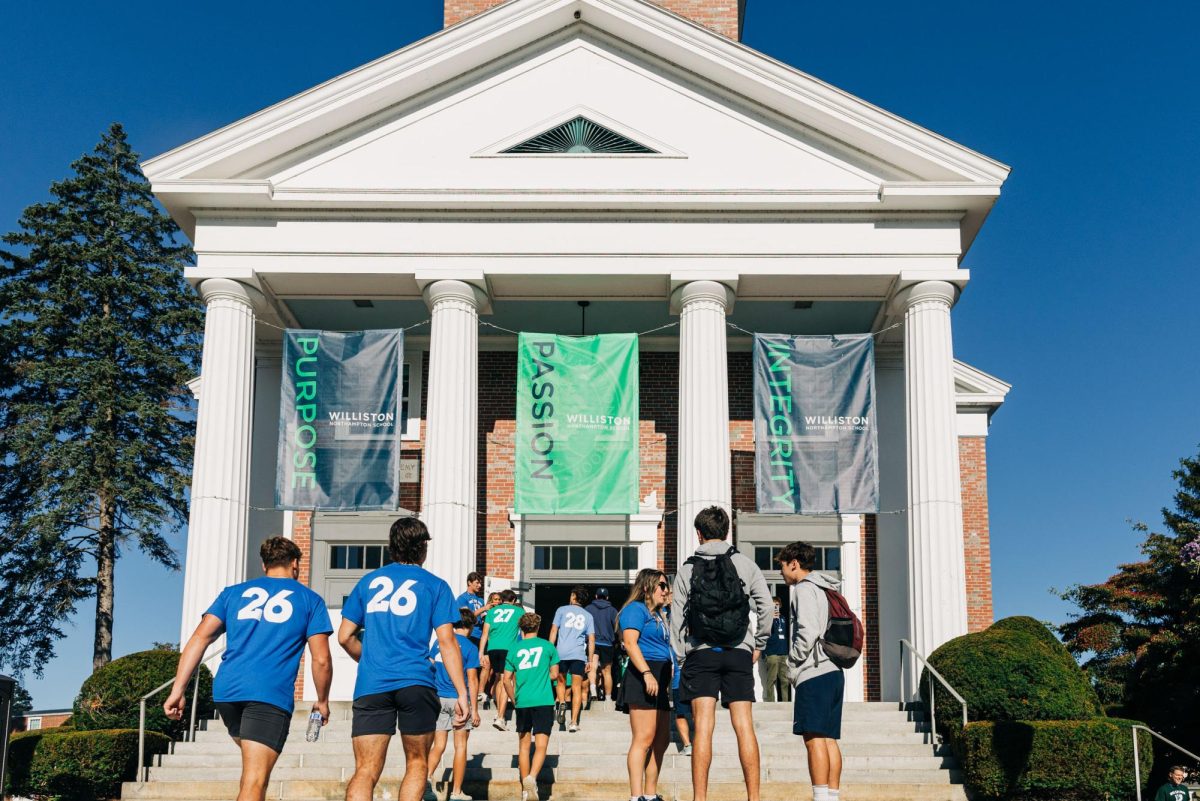by Dylan Kenseth ’14
The Williston Northampton School inspires students to live with purpose, passion, and integrity.
In our daily lives at Williston, we strive to be the best we can be while adhering to three words we rarely bother to truly define. Instead, we attempt to live by the expectations society and the administration pass upon us, reading their judgements as the meaning of our philosophy rather than the statement itself. This is the first installment of a three-part series delving into the true nature of the purpose, passion and integrity we have come to accept as our mission statement. Here, the values of Williston will be explored, tried, and tested.
Purpose, the first of our virtues, is one of the two main forces that drives us in our daily lives. Without purpose, it is inevitable that we will lapse into an existence rife with hedonism and decadence. Though this lifestyle is both enticing and entertaining, it ultimately produces no lasting results. The time and money we invest in years of education leaves us with an obligation: we must make up for it all with a lasting impression upon the world we live in. There is a purpose for that investment, just as there is a purpose to any important choice in life.
Sometimes the purpose of any particular choice eludes us. This is only natural; after all, some things are vast and therefore not immediately apparent. Though there is a great element of luck and randomness in the world, the choices available to us must still be considered for their end goals and the means to get there.
Though the relationship between ends and means is a matter of integrity, the ends themselves are often primarily a matter of purpose. The end goal – the final result – is one we should continue to strive towards in every aspect of our lives, with every fiber of our being. Passion without purpose is mindless and unapplied. Likewise, integrity in isolation is simply a binding dogma, an inhuman code applied with ignorance.
A student who graduats with 99s in all classes, 18 varsity letters and zero units will be regarded as essentially perfect. Clearly, though, we are not perfect. No matter how strong our sense of purpose is, if we constantly push ourselves to the limit, we will reach a breaking point, a red-line that causes even the best student to burn out. In order to counteract this and maintain sanity and energy, most of us find ways to cut loose and relax whenever we are given the time, be it by “acceptable” means or by ignoring society’s constraints on our behavior. Some of us also take that time out of hours earmarked for study and other Williston business.
Though many authorities condemn this behavior, they fail to understand that it is essential for our continued success and mental health. Admittedly, too much therapeutic recreation fosters and attitude of indolence and apathy which wastes the investment our mentors and benefactors have entrusted in us, just as overzealous academic pursuits ultimately destroy the very industriousness that powers them. The key lies in striking a balance.
That being said the balance can seem rather difficult to find on a daily basis. Academics devour our days, athletics our afternoons, and studies our evenings. Many in the faculty assign such a plethora of work that legitimate completion is impossible without unnatural or unsustainable efficiency. Its purpose is generally covering a volume of material or provoking high-level thinking, but there is no denying the existence of an ulterior motive: to keep us so occupied with work that we are unable to relax and engage in seemingly inevitable deviant behavior. Part of the reasoning behind Saturday classes, for example, is that boarding students tend to debauch themselves when an abundance of space is presented.
Regardless of the nature of our idle and recreational behavior, this imposed occupation poses a threat to our well-being, a threat that can be dealt with in two ways: cutting corners to stay sane, or going the distance and risking a burn-out. Both are dubious in their integrity; while the former can break academic integrity, the latter can break physical and mental integrity. This institution stives to instill us with purpose, passion, and integrity, all the while challenging our allegiance to these virtues.
The ultimate question that remains at the end of the day is how to retain and maximize our purpose in spite of all the tribulations that surround us. Though the particulars vary, the core principles remain unchanged. Put succinctly, the key is to balance work with cutting loose in such a way that we achieve the best results we can without going insane from overwork. That drive, which carries us through the most difficult, grueling parts of the Williston experience, is the same force that takes us along the more pleasurable aspects of our daily lives. Without this force – without purpose – there can be no meaningful success.









